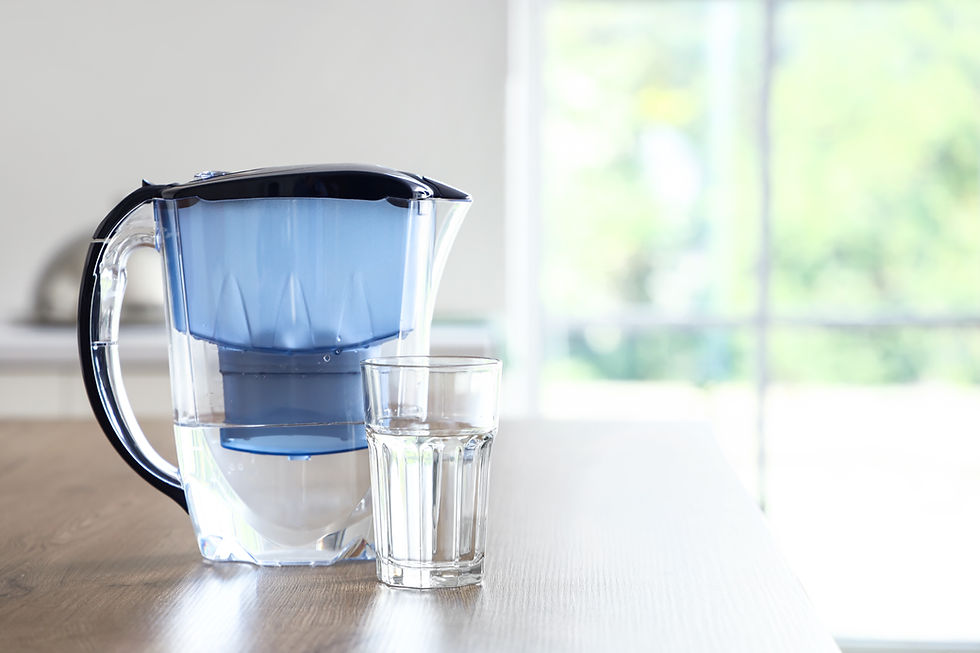Advantages of Ultra Membrane Water filtration
- Holmblad Water
- Jan 6, 2024
- 2 min read

Unraveling the Advantages of Ultra Membrane Water Filter Cartridges with Ultrafiltration: A Comparison with Reverse Osmosis
Clean, safe, and potable water is an invaluable resource, vital for sustaining life and promoting health. As concerns over water quality persist, technological advancements in water filtration have led to the development of sophisticated systems, such as ultra membrane water filter cartridges utilizing ultrafiltration (UF) technology. UF is a form of membrane filtration employing semi-permeable membranes to eliminate contaminants, bacteria, and particles from water. Understanding the advantages of UF membranes compared to reverse osmosis (RO) systems provides insight into choosing the most suitable water purification method.
Advantages of Ultra Membrane Water Filter Cartridges with Ultrafiltration:
Removal of Microorganisms and Particles: UF membranes effectively filter out bacteria, viruses, and microscopic particles. Their pore size typically ranges from 0.01 to 0.1 microns, ensuring the removal of contaminants while allowing essential minerals to pass through, resulting in improved water quality.
High Flow Rates: UF systems have higher flow rates compared to RO systems. They operate at lower pressures, enabling quicker filtration without compromising efficiency, making them ideal for applications requiring a continuous supply of purified water.
Chemical Tolerance: UF membranes are more resilient to chemicals than RO membranes. They can handle a broader range of pH levels and are less susceptible to damage from chlorine or other chemical agents used for water treatment, enhancing their durability and longevity.
Energy Efficiency: UF systems consume less energy than RO systems due to their lower operating pressures which needs no electric pump. This makes them more environmentally friendly and cost-effective in terms of long-term operational expenses.
Retention of Essential Minerals: Unlike RO systems, which tend to remove minerals along with contaminants, UF membranes primarily target larger particles and microorganisms, allowing beneficial minerals to pass through. This helps in retaining the natural mineral content of water, which is beneficial for health.
Comparison with Reverse Osmosis (RO):
Filtration Efficiency: While both UF and RO effectively remove contaminants, RO systems can filter out smaller particles, dissolved salts, and certain molecules that UF may not capture due to their smaller pore sizes. RO is more suitable for applications requiring extremely pure water, such as in pharmaceutical or electronics industries.
Wastewater Production: RO systems produce concentrated wastewater due to their process of separating contaminants from purified water. UF systems generate no wastewater since they operate without needing high pressure to force water through the membrane.
Maintenance and Cost: UF systems often have lower maintenance costs compared to RO systems, as they generally have fewer components and require less membrane replacements.
In conclusion, ultra membrane water filter cartridges employing ultrafiltration offer a range of advantages, including efficient removal of contaminants, high flow rates, no wastewater, chemical tolerance, energy efficiency, eco-friendly, and retention of essential minerals. While reverse osmosis systems excel in achieving high purity levels by removing smaller particles, they tend to consume more energy, produce wastewater, and necessitate higher maintenance costs. The choice between UF and RO systems depends on specific water purification requirements and the desired water quality for a particular application.
See our ultra filtration options: https://www.holmbladwater.com/ufpro



Comments